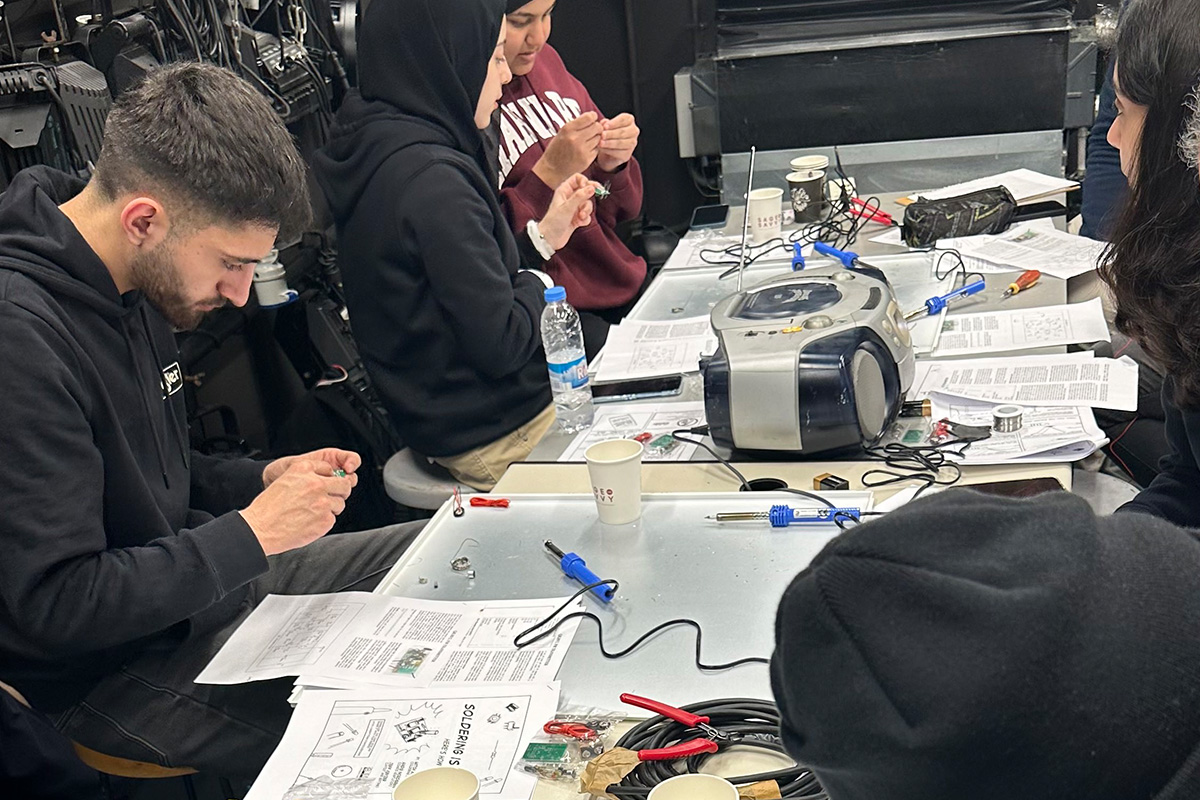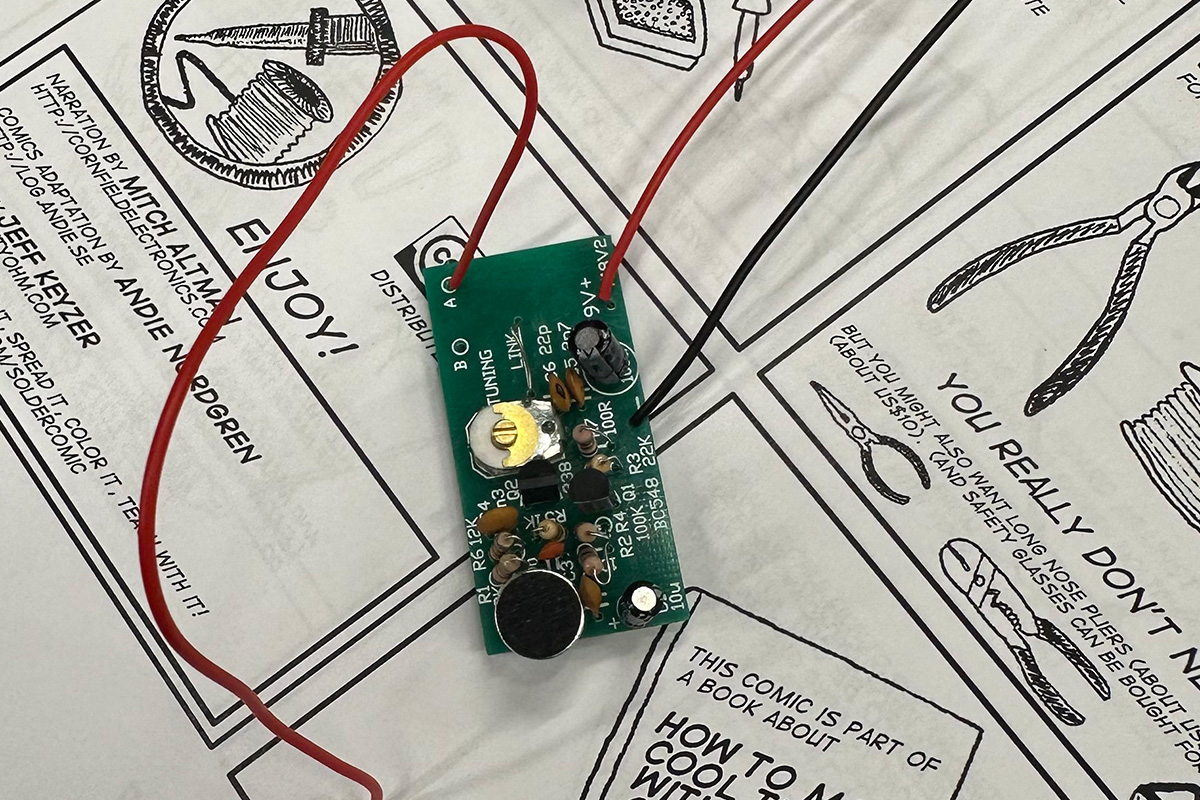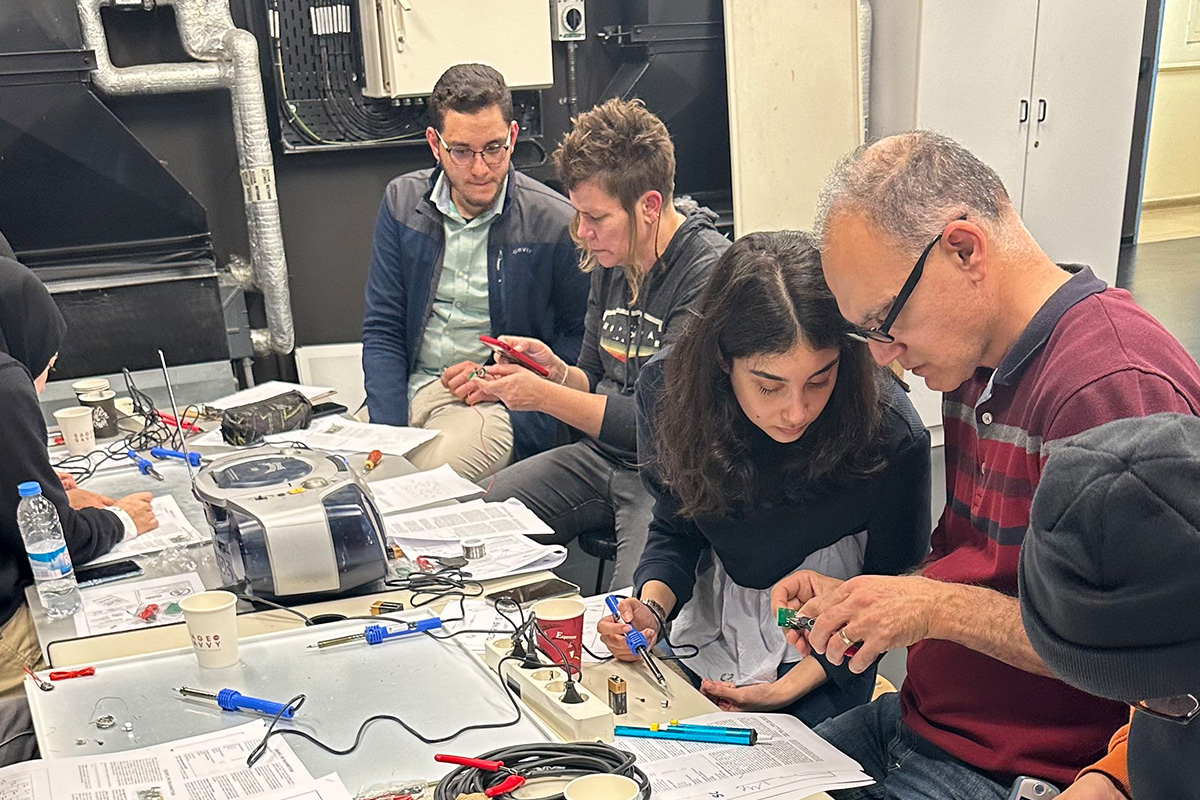Broadcasting From LAU, Do You Copy?
LAU students explore the value of radio as a communication tool in a hands-on workshop organized by the Live Broadcast Club.
In an age where information channels and ways of communication abound, it is a wonder that a medium as old as the radio has survived.
Yet this year marked one hundred years since the first live radio broadcast of the Olympic Games, a milestone that was celebrated on February 13, World Radio Day.
Today, despite the many challenges that the medium faces, including competition from digital platforms and social media, as well as economic hardships, it is still popular among an estimated four billion people worldwide who rely on it for news updates or playing tunes, and particularly those who have limited internet access.
To commemorate this day, the LAU Live Broadcast Club organized a hands-on workshop to introduce students from different majors to radio technology and the exceptional possibilities that the medium offers, from delivering local, uncensored news to connecting people from diverse backgrounds and cultures.

Above all, said Assistant Professor at the School of Arts and Sciences Gretchen King who led the workshop, radio prioritizes freedom of expression and empowers marginalized communities by amplifying their voices and advocating for change.
“When we think of the real problem that we face in the world today, where most media is either owned by corporations or states, putting this in the hands of the communities can be a way for people to have locally produced and community-produced media that is not censored by anyone else,” she said.
At the workshop, the students built radio transmitters from scratch, using kits provided by the Institute of Media Research and Training and an instructive comic book. They learned to solder electronic parts onto circuit boards, mastering basic soldering skills and technical issues in circuitry.

The objective of the exercise, said Dr. King, was to convey to the participants the affordability and simplicity of building transmitters, and the accessibility and control that radio technology affords people over how they communicate and express themselves.
Hedi Jaza, vice president of the LAU Live Broadcast Club, felt particularly excited about the workshop, as he saw its value in student engagement and skill development. He underscored the importance of hands-on experiences for students, especially those lacking practical exposure in their curriculum.
“Seeing people coming from different majors and using the real material that goes in a radio provided a deeper understanding of radio technology and its applications,” he said. “Having to engage in a practical activity beyond the classroom is always appreciated.”
The club is intent on fostering community engagement and dialogue through collaborations with other clubs at LAU in the future, added Jaza. Its objective is to provide a platform for students to share their experiences and address social issues through multimedia channels as a means of promoting interdisciplinary dialogue and inclusivity.
